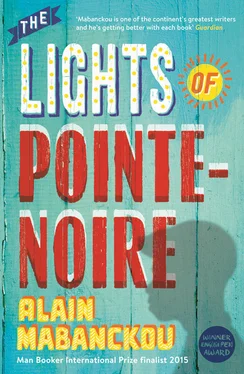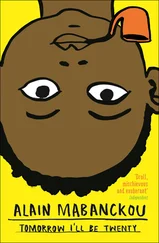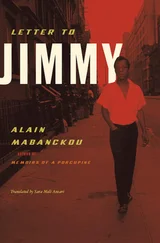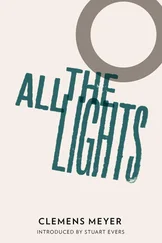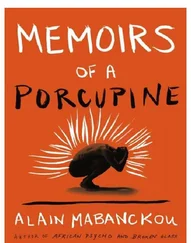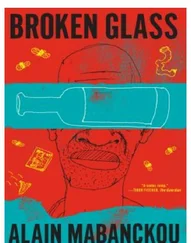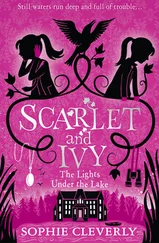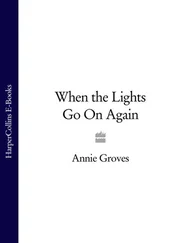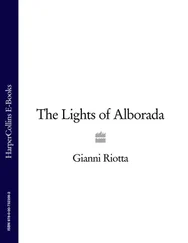I was part of the little group that set off on this punitive expedition, along with six of my half-brothers. One afternoon we went over to the neighbourhood where the woman lived, having been told her name by our mothers: Célestine. Outside her house we found a woman of a certain age, and Yaya Gaston, the oldest of us, spoke to her, saying:
‘Excuse me, madame, we’re looking for a young woman called Célestine, your daughter, we need to talk to her…’
The woman answered curtly:
‘What do you want with her?’
I felt Yaya Gaston’s body shake with anger, and he clenched his fist:
‘Mind your own business, you old crone! We’ve come to tell your daughter to keep her little panties up and stop bothering our father, or we’ll beat her up! She should be ashamed, stealing money from a respectable man with two families!’
‘Well, go on, then. Beat me up!’
‘We don’t want you, old lady! We want to talk to Célestine! Come on, get out of the way, we need to search this place, we know she’s hiding in there!’
She burst out laughing:
‘There’s only one Célestine here, and that’s me! So what are you waiting for? Hit me!’
Yaya Gaston shrank back, turned to us and then looked at the woman again for a few seconds. Grey hair. Large, thick spectacles. Threadbare, patched pagnes. She must be older than Maman Martine, she could be Maman Pauline’s grandmother.
‘It’s — you’re — you’re her?’ stammered our big brother, incredulously, his fist still clenched as though he still meant to hit her.
‘You want to see my ID or what? You just try to hit me, and you’ll be cursed to the end of time!’
Gaston unclenched his fist and turned to us again:
‘I can’t. I just can’t… She’s really old. Who’ll hit her for me?’
‘I said hit me!’ yelled the woman, commanding now, sure none of us would dare lift a finger against an old woman.
Since no one in the group moved, and we were all looking at the ground, Yaya Gaston settled for intimidating the old woman:
‘We’ve come to warn you! If you don’t stop hanging round our father, you’ll live to regret it! Even if you are… like you are!’
‘And how am I? Old, am I? Stink do I? Do I ask your father to come over here? Go and sort out your own affairs, and tell your mothers to satisfy their man, because in my day, believe me, I was such a great lay, my late husband would forget to go to work for a whole month! And tell your mothers to look to their cooking, because when your father comes here you’d think he hadn’t eaten in years! And now, if you don’t get off my land, I’m going to expose myself to you. Then you’ll see with your own eyes what your father’s up to when he’s not with your mothers! I’ve got white hairs on my pubis, you want to see them?’
Yaya Gaston was already out of her yard, with his fingers stuffed in his ears to block out her obscenities. We dashed after him, and fled with our tails between our legs, just as the old woman lifted her pagne around her waist to shake her arse at us.
‘Don’t look back, it brings bad luck!’ Gaston cried.
Anyway, once Papa Roger heard about our visit from Célestine, he began to visit her less often, particularly since we started hiding out near by in the hope of catching him going into the house of the woman we considered a witch, who had cast a spell on our father.
A month went by and the ‘affair’ of the third wife was closed. Papa Roger returned to coming home on time, sitting in a corner to read the weekly magazines from Europe, and exclaiming at the idiot French for forgetting to mention our country, because it was only tiny…
I never felt I really knew Papa Roger very well, partly because he told me nothing about his own parents. I didn’t know whether they were alive, or had passed on into the next world. Nor had I ever set foot in Ndounga, his native village. This didn’t bother me, as I cultivated a visceral hatred for anything connected to any paternal branch, my natural father having cleared off when my mother needed him. To me Papa Roger was father and grandfather, the perfect paternal rootstock, resistant to wind and weather, bringing forth fruit in every season. So I had given up desperately trying to find out about my paternal forebears.
I owe it to Papa Roger that my childhood was scented with the sweet smell of green apples. This was the fruit he brought home for me every week from the Victory Palace Hotel. In our town it was a great treat to eat an apple. For us it was one of the most exotic fruits to come from the colder regions. As I bit into it, I felt I was sprouting wings that would carry me far away. I’d sniff the fruit first, with my eyes closed, then munch it greedily, as though I was worried someone would suddenly come and ask me for a bite and spoil my pleasure in crunching it down to the last little pip, since no one had ever taught me how to eat an apple. Papa Roger stood there in front of me, smiling. He knew he could get me to do anything he wanted by simply giving me an apple. I’d suddenly turn into the most talkative boy on earth, even though I was by nature rather reserved. My mother realised the havoc an apple could wreak in my behaviour. She’d fly into one of her rages, usually at my expense, which to this very day tarnishes my pleasure in that delicious smell:
‘There you go again, telling your father all sorts when you’ve eaten an apple! I’ll start to think they’re alcoholic, and have to ban them!!’
‘I didn’t do anything!’
‘I see, so why did you tell him I went out with someone this afternoon, then? Don’t come asking me to get your supper tonight! Let that be a lesson to you!’
It was true, I had been rather indiscreet that day, whispering to my father that a slim, tall man had dropped by our house, talked with my mother, after which the two of them had gone to a local bar for a drink. At this my father flew into a rage and yelled at my mother:
‘I thought so! It’s that guy Marcel, isn’t it? You said it was all over between you and that imbecile! More fool me!’
My father refused to sit down at table with us that day, and shut himself up in the bedroom. Marcel was someone Maman Pauline had met around the same time she met my father, but she must have made the choice she did because Marcel was a seasoned womaniser who believed women fell at his feet because he had a great body. According to my mother, nothing happened between them. She took a fistful of earth in her right hand, scattered it in the air, which meant, in our tradition, that she swore she had told me the truth, the whole truth, nothing but the truth; you couldn’t mess around with this custom, it had been used by our tribe since the dawn of time. Anyone who swore like this when in fact they’d been lying got a terrible headache the next day, and sometimes had to stay in bed for days on end. First they vomited, then their skin dried up. My mother did not develop any of these symptoms over the next few days. So I decided to believe her version, and let drop Papa Roger’s, even though somewhere deep down I still wasn’t sure.
Papa Roger was convinced Marcel was still after my mother and that something was going on between them, something lasting, perhaps, since he seemed to reappear every two or three years. When I was eight or nine years old, a really memorable fight broke out between the two men in the rue de Louboulu, in the Rex district. This was Uncle Albert’s turf, he worked as a civil servant for the National Electricity Company and had been the first person on my mother’s side of the family to emigrate from the village of Louboulou to Pointe-Noire. It was because of him we had all come to live in Pointe-Noire, with the exception of my mother, who made her own way here, to try to forget my natural father. Uncle Albert had come first, and once he’d set himself up he sent for his younger brother, Uncle René. After that his younger sisters arrived — my mother’s older sisters — Aunt Dorothée and Aunt Sabine. When my mother arrived she brought with her the youngest of all the brothers and sisters, Uncle Mompéro. And as my maternal grandfather Grégoire Moukila was polygamous — twelve wives and more than fifty children — Uncle Albert gradually assembled them all at the rue de Louboulu, as his own professional position became more secure. Another of my uncles, who I was very close to, arrived by this route, Jean-Pierre Matété, who had the same father as my mother. With so many members of the family living in this street, Uncle Albert got the authorities to agree to change the name to rue de Louboulu, in honour of this small corner of the Bouenza district, of which our grandfather, Grégoire Moukila, became chief in the mid-1900s. In a way the street was like our own village. Most of the houses had been built by people from our district, though in later years some of them had sold their homes, gradually allowing people we didn’t know to move in. Because my uncle worked in electricity everyone got free power. A wire simply had to be passed from one household through to the next, and suddenly we went from storm lantern to light bulb, from coal iron to electric iron.
Читать дальше
